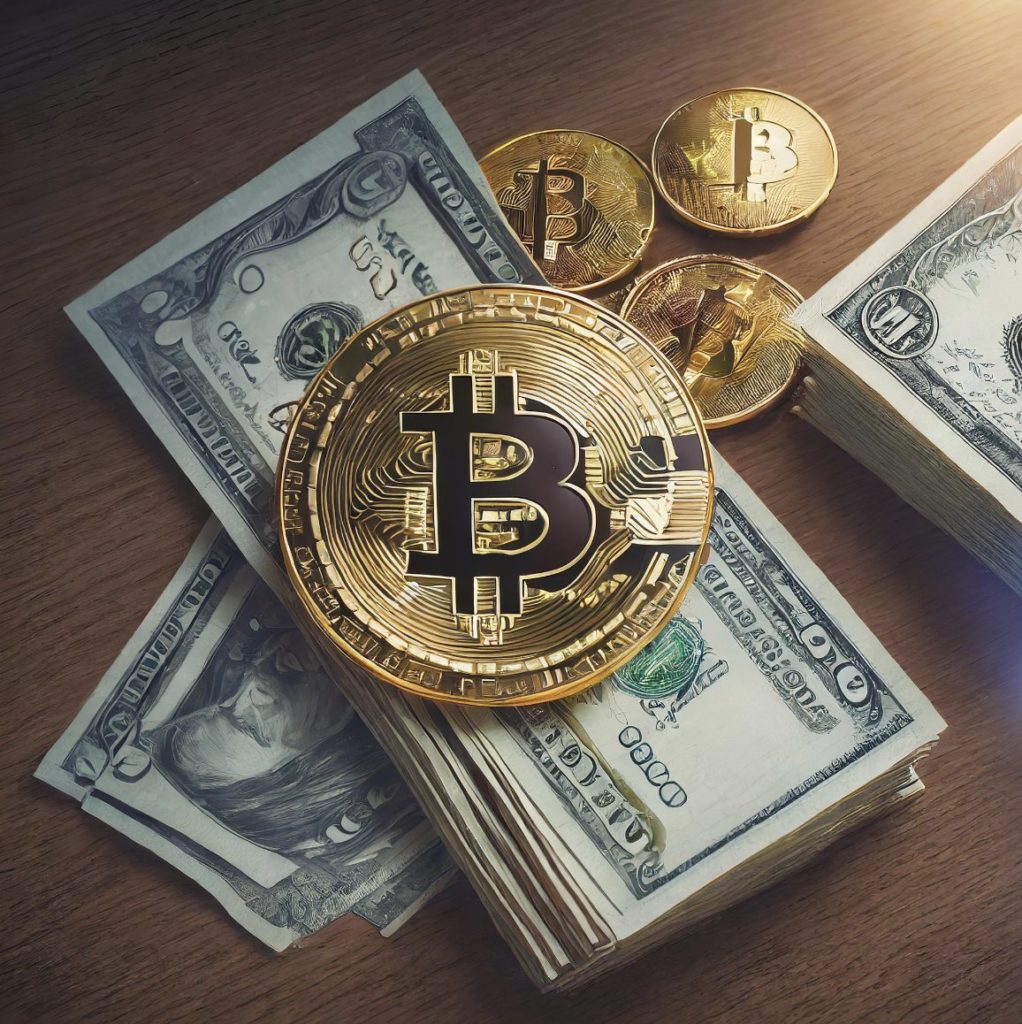By The American Contemporary
This past week, the House Committee on Agriculture and Financial Services released a letter which was sent to Janet Yellen, current secretary of the Treasury, requesting additional details in what the committee perceives as shortcomings toward consumer/investor protections with digital or blockchain assets. More specifically, the report details several alleged shortcomings in various policies and pieces of legislation which have come forward over the past several years pertaining to the sale and trading of crypto currencies. Of course, blockchain assets and the trade of them is a topic which could be its own dissertation, the specifics of which are beyond the scope of this analysis. Instead, let’s consider some of the more basic aspects explored in this letter as well as the context around the opinions expressed in the letter. Finally, we will conclude with a personal analysis of this complex topic from a more politically fundamental perspective.
To provide background, crypto currencies are, in the most simplistic terms, a representation of assets that exist in purely digital form as a decentralized, unbacked asset. In other words, much like the current US dollar, it is like a fiat currency which is not tied to any commodity or asset, apart from the word of the government or its holders. Unlike the US dollar however, since crypto was decentralized, it was less traceable and was exchangeable internationally, independent from government involvement/oversight. In the case of the US dollar, the value is assigned by the government, and is supported by its word and the relative strength of its ability to make good on its investments (as well as a myriad of other factors relating to the overall economy). Crypto however, has no such good faith backing from a centralized authority, and instead depends on more speculative “market” value. While bitcoin was first launched in 2009, its rapid rise in popularity resulted in the US government declaring that any profits made from its sale would be taxed following 2014. While there was always a growing concern regarding the speculative nature of the currency, as well as the somewhat dubious nature of its use, the central catalyst for government involvement would come following the collapse of FTX, one of the world’s largest crypto exchange platforms.
FTX was found to have committed extensive defrauding of their clients (amongst other crimes), mishandling their assets and misrepresenting the relative risk of investing in crypto, resulting in customers losing nearly a combined $10 billion in value (although it should be noted that some money has been recovered through the bankruptcy process, but much of it is still missing). The fallout from this case, coupled with other lesser known incidents surrounding the regulation and operation of blockchain assets in the past several years has resulted in the House proposal, ‘The Financial Innovation and Technology for the 21st Century Act’. This act, if enacted as it currently stands, would place several notable restrictions on crypto currencies. Namely, it would place restrictions and regulations on exchanges which offer the sale of digital assets to customers and financial institutions. Further, it attempts to bridge the gap of what is and is not a security (and by extension, determining whether crypto requires oversight by the Securities and Exchange Commission (SEC).
Within the recently released letter, the committee has requested additional information pertaining to the treasury department’s opinion and position on several policies surrounding crypto. While there are several points (which you can read here should you be interested), the two most interesting ones to this author are their inquiry into the nature of securities as defined currently, as well as the proposal for expanded jurisdiction of The Commodity Futures Trading Commission (CFTC). Let’s quickly explore these two considerations in more detail before analyzing them at large.
First, determining whether crypto is truly a security is no small feat. The Supreme Court has ruled in the Howey case that a security is defined by four key points: 1) the object is an investment of money, 2) there is an expectation of profits, 3) there is a common enterprise, and 4) it has a reliance on the efforts of others. These criteria, while providing a basic guideline, were also vague and open to interpretation. A recent court case however, SEC v. Ripple, which reached its conclusion in 2023 provided additional details in legal interpretation. The court found that crypto sold to institutional investors did meet the criteria of a security, however public retail sale over an exchange did not. In the House Committee’s letter, they seek to get clarification on the position of the Treasury Department as it pertains to the definition of a security, and whether security oversight extends following a transaction of crypto, even if it was a secondary transaction.
Second, the House Committee has drawn attention to the increasing authority of The Commodity Futures Trading Commission (CFTC) over crypto exchanges. Specifically, the CFTC has expanded their authority over crypto to regulate and prevent transactional fraud, particularly as it pertains to international and state-to-state commerce. The House Committee however, argues in their letter that because the CFTC already regulates crypto for prevention of fraud in peer-to-peer transactions (which recall from above is not considered a security), they similarly should have the authority and power to regulate other aspects of crypto when it is not a security. Specifically, they recommend an expansion of the department’s oversight to include spot price regulation. This would give the department the power to control, observe, and impose restrictions or protections over the exchanges themselves, as well as their practices and potentially even the sale of crypto even when being used as currency rather than investment.
If you have made it this far, I congratulate you and apologize for the abundance of acronyms, confusing concepts, and succinct summaries of extensive reports. But it remains the case that crypto, and its place in the regulated world of commerce and government remains confusing and murky to say the least. Briefly, let’s consider these positions from a politically fundamental perspective, as well as the greater implications they may have.
It is well documented that crypto scams have been on the rise, taking many forms and targeting a wide range of demographics. The end result however, is the loss of money from innocent people’s wallets, many of whom invest under false-pretenses, misrepresentation, or poor understanding and research of the commodity. Of course the stock markets are similar in that they are speculative (to an extent), and do not guarantee a return on investment, potentially resulting in lost moneys. The distinction however is that regulation and limitations in access to the stock markets make it less likely that investors could lose everything in one fell swoop. Creating safeguards, as some may argue, could help prevent such scams from occurring in the future and would save millions of people billions of dollars of loss over time. Additionally, regulations create more stability and structure to the coins themselves, and may reduce their volatility as they are traded, especially if spot-price restrictions are implemented.
But to this, we must also acknowledge several notable issues with these policies. The first (and perhaps the most glaring issue) is that these regulations curtail what, in this author’s opinion, is the central point of the crypto market. Crypto, in its inception, was designed to provide users with a deregulated alternative currency marketplace where sales and monetary exchanges could occur. This enabled users to move finances without prying eyes, and while it was heavily used for illegal activities (especially in its early years), it still offered privacy for users who valued it. Essentially, it became a form of cash for the online world, only that it was not tied to any single nation or good, and was instead owned by people who gave it value based on its use and abundance. However, increased regulation of these assets undermines that very concept, and the classification of these assets as securities or otherwise creates oversight which the original good was designed to avoid. While I cannot deny that such regulations protect people from those who would steal, abuse, or take advantage, more regulation further devalues the coin based on its purpose and usefulness to the public.
Additionally, there is some exception to be taken regarding further expansion of power of the government. While it is the duty of the federal government to regulate the economy of the state, and it may be argued that this falls within its defined jurisdiction, one could argue that further expansion of oversight and regulatory bodies represents unfair centralization of power. Whether this is worthwhile to protect consumers is largely a personal question, and will vary from person to person. From a fundamentalist perspective, some degree of regulation is warranted as it pertains to general economic development, however I would argue that any attempt at dictating spot prices, monitoring transfers of non-securities from peer-to-peer, or other limitations to crypto’s use as a currency (that is, not as an institutionalized investment) would be an abuse of power. Of course, this is all speculative and the official powers of the bill are still being discussed.
Finally, it is worth noting a frequent concern when crypto and government are mentioned in the same report: digitized currency replacing physical money. To clarify, while discussions have been had by various individuals regarding the future of physical money and the potential introduction of a digitized dollar, to this author’s knowledge, nothing in these bills or reports have addressed this. However, I do believe there is a rightful concern from a fundamentalist perspective regarding digital currencies, at least in the situation where they replace physical money. Digital currencies, like I mentioned above, would effectively remove all the decentralized benefits of crypto, and would result in the coin being backed by the government, much like the US dollar. Unlike the dollar however, currencies such as this would also introduce the opportunity for increased surveillance, tracking, and monitoring of monetary habits and spending. If physical currencies were removed, all transactions could, in theory, be accounted for over the course of a year. This creates numerous ethical and moral implications for citizen privacy and, in my opinion, represents considerable abuse of power by the government. That being said, I do not believe this represents a short-term concern, though it is good to remain aware.
Overall, crypto is increasingly becoming regulated in the US, with more oversight being introduced in an attempt to collect taxes on earned income, and prevent fraud and abuse. But are these increased protections really beneficial, or do they undermine the fundamental purpose of the coin? Do they fall within the jurisdictions of the federal government to protect consumers and regulate trade and currency, or is this another case of centralized powers attempted to gather more power and reduce decentralized assets? At the end of the day, it is truly a personal question. But from a fundamental point of view, while some regulations are warranted, there is some cause for concern should the committee continue to seek control.

